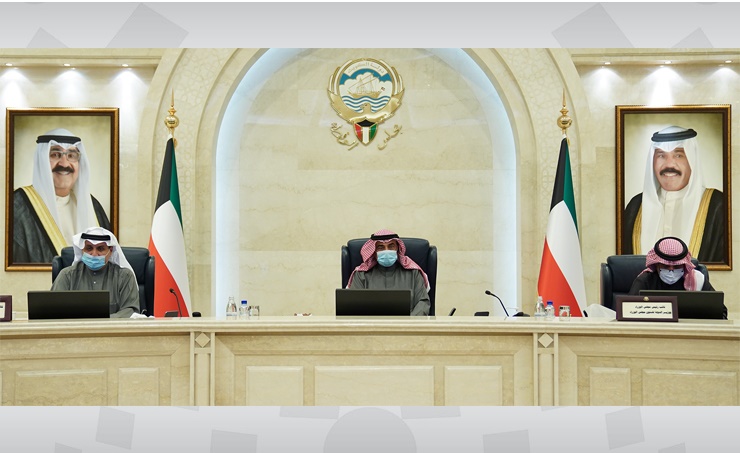Kuwait : The Kuwaiti cabinet has abolished the majority of coronavirus restrictions, signaling the start of a new era and approach in dealing with the pandemic.
The move comes after Kuwait’s success of weathering a recent wave of infections and amid a growing optimism about the health situation in the country thanks to a spike in the number of vaccinated people.
The cabinet, in its weekly meeting, headed by the Premier His Highness Shaikh Sabah Khaled Al Hamad Al Sabah had agreed on cancelling social distancing rules in mosques, public means of transport, cinemas, theaters, and banquet halls.
It also ended the ban on in-person events such as conferences, training courses, weddings, funerals, etc, according to a statement read out by Foreign Minister and Minister of Cabinet Affairs Shaikh Dr. Ahmad Nasser Al Mohammad Al Sabah following the cabinet meeting.
It allowed unvaccinated people to travel abroad and enter malls and shopping centers.
The cabinet cancelled the requirement of weekly PCR tests for unvaccinated under 16-years-old students wishing to attend classes in person.
It also restricted quarantine requirements for students whose PCR test came positive or those who showed virus symptoms.
The cabinet scrapped pre-departure, post-arrival PCR tests and home quarantine requirements for arrivals who got three shots of the Kuwaiti-authorized vaccines.
Whereas, the double-jabbed arrivals will be exempted from the pre-departure PCR test only as they still need to quarantine for seven days after entering the country but they can end the quarantine at any time if they presented a negative PCR test.
Unimmunized arrivals have to submit a certificate of a negative PCR test conducted within 72 hours before the departure and must quarantine at home for seven days and conduct a PCR test after the end of the quarantine period affirming that they are not infected.
Unvaccinated young arrivals, who are under 16 years old, are exempted from these tests and quarantine measures.
The cabinet encouraged arrivals to get rapid antigens tests after entering the country if they had symptoms. If the result was positive they have to conduct a PCR test, it stressed.
It has also divided vaccinated people into two groups: fully vaccinated and not-fully vaccinated people: fully vaccinated people are those who took three shots of one of vaccines authorized in Kuwait; those who took the second shot less than nine months ago; and those who recovered from an infection in the past three months.
Not fully vaccinated people are those who got double jabs more than nine months ago.
It also identified unvaccinated people as those who did not take two shots of the vaccines authorized in Kuwait.
The cabinet said that the loosening of these restrictions would be effective as of February 20.
Nevertheless, it decided the return of civil servants to work from offices with full capacity as of Sunday March 13.


